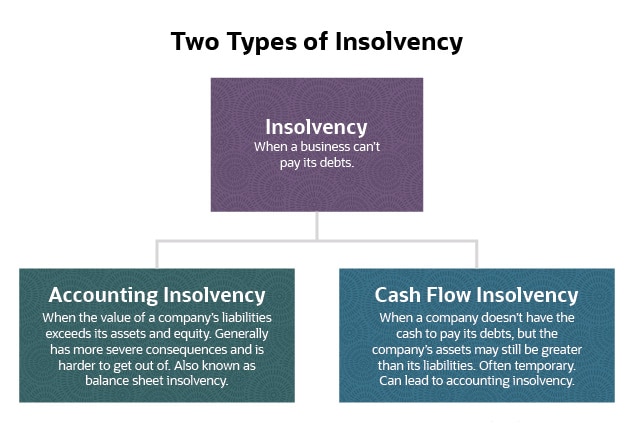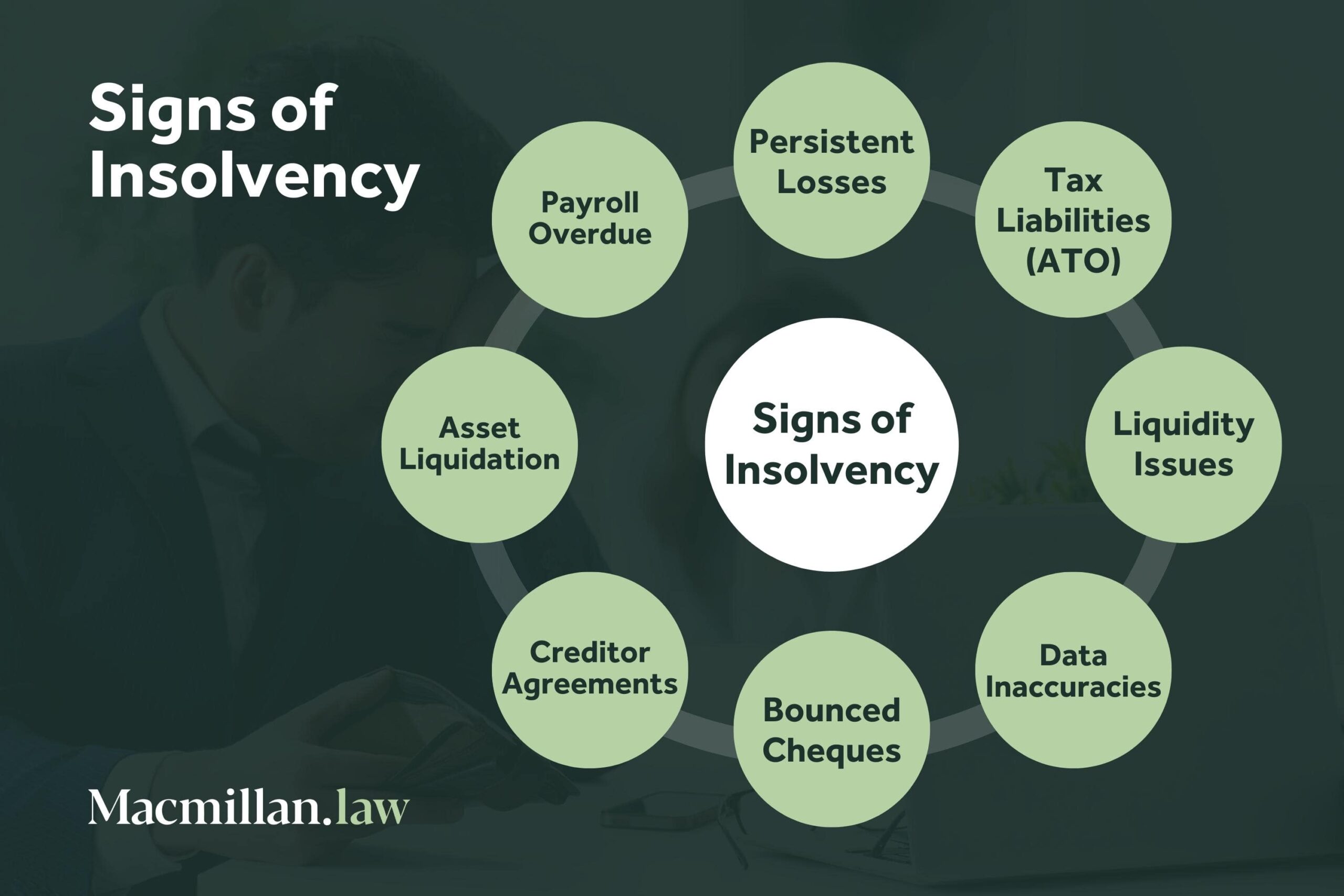The 15-Second Trick For Insolvency Practitioner
The 15-Second Trick For Insolvency Practitioner
Blog Article
The smart Trick of Insolvency Practitioner That Nobody is Discussing
Table of ContentsLittle Known Questions About Insolvency Practitioner.How Insolvency Practitioner can Save You Time, Stress, and Money.The Insolvency Practitioner StatementsFascination About Insolvency PractitionerInsolvency Practitioner for BeginnersAn Unbiased View of Insolvency PractitionerThe Best Guide To Insolvency Practitioner
Bankruptcy is when liabilities are higher than the value of the business, or when a borrower can not pay the debts they owe. A firm can come to be bankrupt as a result of a variety of circumstances that bring about inadequate capital. When encountered with insolvency, a service or individual can contact lenders straight and restructure financial obligations to pay them off.Bankruptcy can bring about bankruptcy proceedings, in which lawful activity will be taken versus the financially troubled individual or entity, and properties may be liquidated to pay off impressive financial debts. Service proprietors might call creditors directly and restructure debts into more manageable installations. Financial institutions are normally open to this technique due to the fact that they wish to be paid off and avoid losses, also if the payment is on a postponed timetable.
Fascination About Insolvency Practitioner
The proprietor develops a proposal detailing how the financial debt might be restructured using cost reductions or other plans for support. The proposition reveals creditors how business may produce adequate cash money circulation for successful operations while paying its debts. Generally, a forgiven debt may be taken into consideration income by the Internal Earnings Solution (INTERNAL REVENUE SERVICE).

The Best Strategy To Use For Insolvency Practitioner
Business may end up paying large amounts of money in problems and be not able to continue operations. When operations stop, so does the firm's revenue. Lack of revenue leads to accounts payable and lenders asking for money owed to them. Some firms become insolvent because their goods or solutions don't develop to fit consumers' transforming demands.
Expenses surpass earnings and expenses continue to be unpaid. Types of insolvency consist of cash-flow bankruptcy and balance-sheet insolvency. Cash-flow insolvency occurs when a firm has the assets to cover their financial debts however they remain in the wrong type, such as property rather than fluid funds. Balance-sheet insolvency, on the various other hand, indicates an absence of possessions in any form to cover debts.
The internal revenue service states that a person is insolvent when the complete obligations go beyond complete possessions. A insolvency, on the other hand, is a real court order that portrays just how a bankrupt person or organization will pay off their financial institutions, or just how they will sell their assets in order to make the settlements.
Some Known Questions About Insolvency Practitioner.

Financial obligation debt consolidation is when you incorporate multiple loans right into one brand-new car loan, usually to achieve far better terms. Bankruptcy is not the like personal bankruptcy, although a firm that has actually become financially troubled may declare bankruptcy. Insolvency is the state of not having the ability to pay your commitments while personal bankruptcy is a lawful procedure to discharge your financial obligations.
Comprehending the variables that can result in bankruptcy, such as overspending, can aid you stop insolvency and its consequences.
9 Easy Facts About Insolvency Practitioner Described
It is popular that directors and police officers of corporations (and supervisors of restricted liability business) owe fiduciary duties to their companies and their investors (or participants). These fiduciary obligations are defined by state laws and, though there are variations from one state to another, they generally consist of an obligation of commitment and a duty of treatment.
The duty of treatment needs directors and officers to exercise diligence, to make enlightened decisions, and to act in good faith to make sure that their activities are in the very best passion of the firm. Beyond the range of this discussion, some states allow these responsibilities to be limited either by so keeping in mind in the organizational papers or official website conforming with various other needs.
What Does Insolvency Practitioner Mean?
The majority of states define insolvency in two methods( 1) when a business's obligations become above the sum of its assets or (2) when the company ends up navigate to this website being unable to pay its debts as they become dueand accept both meanings (Insolvency Practitioner). The change in duties takes place due to the fact that when a company is bankrupt, there is no worth in the company beyond that owed to the firm's financial institutions to ensure that the equity owners no more have an economic stake in the company
Be mindful concerning providing shareholders favoritism at the expense of creditors (e.g., accrediting and funding a dividend or a stock redemption). Be cautious concerning preferential therapy between classes of shareholders. Clear up efforts to learn all the realities prior to taking a details strategy; directors ought to genuinely think that any decisions made are in the most effective passions of the company in its entirety (i.e., choices will be evaluated in hindsight taking into account the result of such activities on the corporation).
In any insolvency or insolvency proceeding, repayments made to particular creditors at the cost of various other lenders can be clawed back, specifically if there is some connection in between the business and the lender. Think about proposing at an annual investor meeting (or any other conference of stockholders) a resolution affirming that all previous service choices and activities taken by the directors and policemans of the firm were taken in great faith after a workout of sensible treatment.
Some Known Incorrect Statements About Insolvency Practitioner
Totally disclose any personal or organization partnerships with parties on the various other side of transactions including the company to avoid the appearance of a dispute of rate of interest. In assessing potential fund raising purchases or a sale of assets of the distressed corporation, be mindful redirected here that these purchases may be looked at later because of any succeeding growth of directors' fiduciary tasks to include lenders.
Report this page